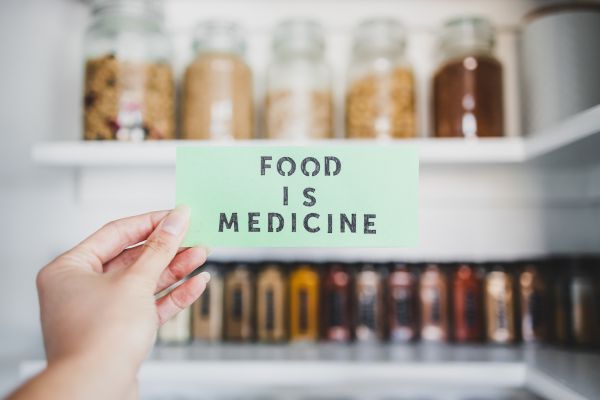Intuitive Eating: Fad or One Big Misunderstanding?

Intuitive Eating: Fad or One Big Misunderstanding?
This week at work I spoke with quite a few patients about the concept of intuitive eating. Hear me out, this is NOT what you think!
Most often, when people talk to me about intuitive eating, they talk about “giving your body what it wants”. This could mean eating a bag of potato chips in one sitting or a carton of ice cream. Often this is with the misperception that if your body is craving something, it must have some deficiency in some nutrient or vitamin. This can happen for medical reasons. A great example is Pica in pregnancy. Iron deficiency in pregnancy can lead to women desiring to eat nonfood items such as ice, dirt, etc. to try to meet their body’s need for iron, otherwise known as Pica. However, I will tell you that for most people, this is not the situation. I crave jellybeans, chocolate cake and Twizzlers, but I can tell you my body has never once had a deficiency of artificial food coloring/flavoring or any nutrients in those foods (if there actually are any). If you eat the standard American diet, you are likely NOT deficient in any micro or macronutrients unless you have another underlying condition (pregnancy, celiac, etc.). So, I recommend starting any dietary changes with the assumption that you are well nourished.
More enlightened nutrition experts have suggested that intuitive eating is about recognizing your hunger, feeling your “fullness”, and coping with your emotions and feelings without using food. I would agree to some extent with all those suggestions. I think each of those things is critical to having a healthy diet and knowing when and how much to eat. However, I don’t think it’s the whole story.
So, what does intuitive eating mean? I believe it means not only paying attention to what you desire, your feelings of hunger and satiety, and learning alternative coping mechanisms for emotional distress, but paying attention afterward to what the effects of foods are after you eat them. What keeps you full and satisfied? What powers your workouts best? What foods or beverages cause you not to sleep as well? What is the best timing of your meals during the day and what is the ideal amount of food? Listening to what your body tells you after you eat is just as important as recognizing hunger and fullness. One of the best examples of this was brought to me last week by a patient. She works nights and tells me that when she gets home after a long night and is hungry, she’s found that if she eats an egg frittata with veggies she sleeps well during the day and wakes up ready to go to work. She noted that eating a sandwich doesn’t produce the same result. After a sandwich she often wakes up hungry and still feeling tired. Listening to and learning our body’s needs helps us intuit on future occasions what is going to best serve our health. In this case, this patient now knows that when she gets home from a long night at work, her best chance of feeling great and being her best self comes from eating a combination of wholesome, fresh foods.
Intuitive eating also means drowning out the outside messages from the media about what constitutes a health food. Now, more than ever, the supermarket shelves are full of products with all types of eye-catching health claims on them. Labels such as “natural”, “fat free”, or “no cholesterol”, and catch phrases like “super foods” or “super greens” are everywhere and imply the product is healthy, but the reality almost always falls short. Intuitive eating means ignoring the baseless claims (i.e. granola bars with “healthy” printed on the label or supplements promising more energy) and eating the foods we know are good for us – fruits, vegetables, and other whole foods that come from the earth. Real food doesn’t need a label telling you it’s healthy, natural or any other seductive descriptor. In fact, real food doesn’t need a label at all. We don’t need labels on apples, potatoes, milk, eggs, fish, chicken, etc. to know what they are or that they are natural and healthy for us to eat. Our intuition tells us that they are good for us. Why? Because when we eat whole foods in a balanced meal, we feel good and our body remembers that feeling. Like our intuition around other experiences/people/things, intuitive eating comes from increasing our perception of our own reactions and being aware of others’ behaviors/claims so that we can make better choices about what foods we really “want” to eat.
So, consider trying real intuitive eating in the future to see what you can learn about yourself, your body and its needs. I’m not saying that intuitive eating will cure all our cravings, late night binges, or fast food on the run. However, listening to your gut and ignoring the flashy claims can go a long way towards making better, healthier eating decisions.
Just some food for thought. ;)